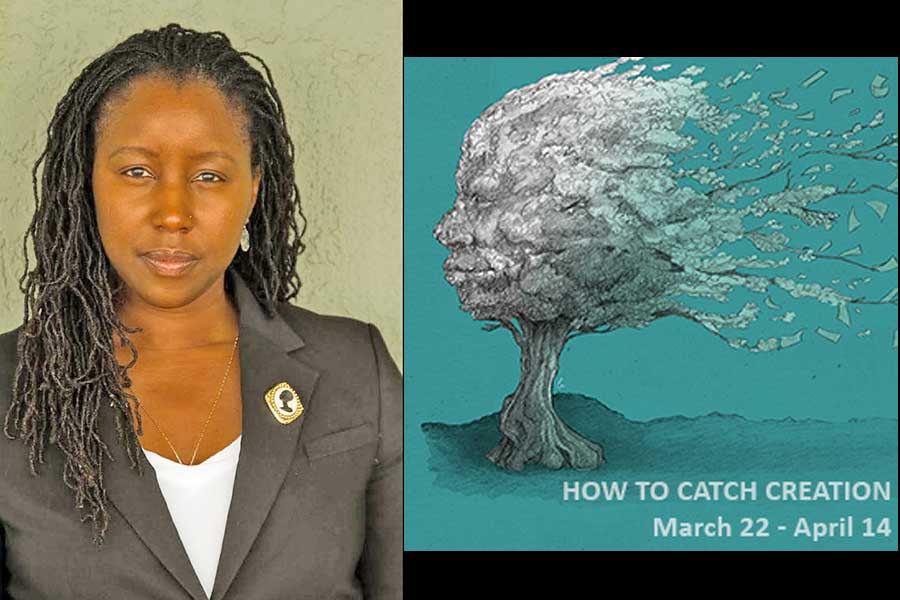When Philadelphia Theatre Company premieres “How to Catch Creation” March 22, playwright Christina Anderson’s work will be a debut of another sort for the Broad Street troupe.
PTC and its producing artistic director, Paige Price, are the first in the United States to make an annual pledge to produce at least one work per season from The Kilroys list — started in 2017 to identify new and under-produced plays exclusively by female, trans and nonbinary writers, such as Anderson.
Price tapped Nataki Garrett, one-time associate artistic director of Denver Center for the Performing Arts Theater Company, to direct PTC’s “How to Catch Creation.” Garrett said most of the work she has executed in the past has focused on the spectacle of existence.
“There is living within a white gaze and being misunderstood and codified by that gaze,” she said of tackling such dramatic racial, sexual, gender and social oversight.
“What I love about Anderson’s play is that here, people get up, have breakfast, live normal lives and break each other’s hearts — the characters have the gift of simplicity and an existentialism about them,” added Garrett. “All of their complexities, in their queerness, in being exonerated after incarceration, as lovers and artists — they’re all allowed to live like people I know.”
Garrett calls the humble ways of “Catch Creation” a quiet revolution. Price said she also responded viscerally when she caught the production at a festival in Chicago in 2018. ”It simply presented lyrical depictions of people who were interesting. The premises of searching and legacy were compelling.”
That Anderson was queer may have pushed Price to continue with the focus on the Kilroys and the commitment to staging at least one show per season from the list. She and Garrett said that a good play comes first.
“That was the main thing, and here, Anderson’s characters are living life with full human complexity,” Garrett said. “I reject the idea that heteronormative existence is normative, and replace that with existence being normative. This play finds these normal people affecting each other in profound ways without sweeping battles or generalizations. This is not a dissertation. The biggest thing these characters face is heartbreak.”
Price and PTC’s commitment to the Kilroys and to staging LGBTQ/nonbinary work, then, isn’t about what most companies might choose — the educational production. It doesn’t pander to the headlines or to social-media hashtags.
“This ‘Creation’ play isn’t explicitly about the queer experience — it just is,” Price said. “It’s about good stories told well.”
That is where PTC’s commitment, too, is different from most other theater companies: It seeks to expand its aesthetic and social footprint when it comes to diversity and inclusivity.
“To start, I wish that a list such as The Kilroys wasn’t necessary,” Price said. “But this list was put together by caring industry types for those who are looking for great out, trans or women’s plays and don’t know where to find them. And it does make my job a little bit easier.”
And that job is making certain that everyone’s stories — the most interesting ones — get an airing on stage. So, Price and PTC decided to put their money where their mouths and goals were and make the concrete commitment to its values.
“You can’t ever say that great out or trans plays don’t exist — they’re here,” said Garrett. “That The Kilroys list just happens to have some of the best plays and tell the best stories out there is a bonus. If you want to decentralize the status quo, and the status quo states something doesn’t exist, you prove that it does. Then after a while, the need to prove as much — a list such as this — won’t be necessary.”
While the cast and creative team of “How to Catch Creation” does include members that identify as LGBTQ and nonbinary, PTC currently isn’t as diverse.
“The difficulty of having a current staff that reflects your purported values is important to us — it’s a thing,” said Price. “We do have a lot of women on the staff — only two men — as well as people of color, but there’s an additional balance that we must achieve. What I do have the immediate power to do is put the shows on the stage and hire the casts and crews that do reflect our values.”
Philadelphia Theatre Company’s “How to Catch Creation” runs March 22-April 14 at Suzanne Roberts Theatre, 400 S. Broad St. For more information, see philatheatreco.org.
